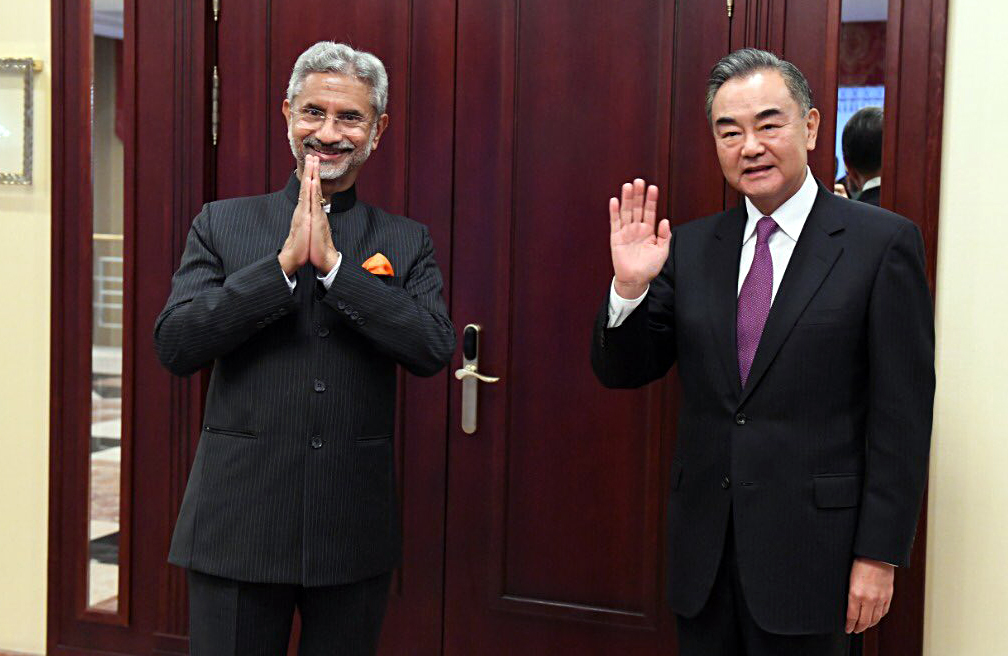SCO meeting has noted the strength and confidence with which India has dealt with China.
After the recent visit by Defence Minister Rajnath Singh to Russia to attend the Shanghai Cooperation Organisation’s (SCO’s) defence ministers’ meeting, there have been speculation about India’s increasing role in global affairs. It was followed up by External Affairs Minister (EAM) S. Jaishankar’s visit to Russia to participate at the SCO foreign ministers’ meet and demonstrated India’s willingness to achieve perpetual peace during the time of the crisis ongoing with China.
Referring to the talks with his Russian counterpart, External Affairs Minister S. Jaishankar termed these as “excellent”. This reflected the “Special and Privileged Partnership” between the two countries, he said. Two years ago, around the same time, the late EAM Sushma Swaraj was in Russia to co-chair an important bilateral meeting on India-Russia Inter-Governmental Commission on Technical and Economic Cooperation (IRIGC-TEC). The current EAM also visited Tehran and had talks on India-Iran cooperation with his counterpart on a number of wide ranging issues such as the fast evolving situation in Afghanistan ahead of US Presidential polls, and the situation in the Gulf including in the Strait of Hormuz and Chabahar port.
Besides the $5 billion S-400 surface to air missiles, New Delhi has placed orders worth about $14.5 billion of defence equipment with Russia. This is beside the orders for the supply of Admiral Grigorovich class (Krivak IV) Project 11356/M frigates and ammunition for Indian Army, Navy and Air Force. Next to the US, Russia is the second largest defence product exporter and India-Russia bilateral trade is likely to touch the $30 billion mark in about two years. The prospects are encouraging, especially in the background of the threat of severe sanctions by the US on any country that deals with Russia’s defence and intelligence industry.
While 58% of our defence imports are from Russia, the bilateral trade between the two countries is likely to go up further though Russia is not among the top five countries that India exports to or imports from. Yet the fact is India is the only country in the region with which Russia can expect to do greater trade.
As we underline the power of India’s market potential, much to the discomfort of in house
The Indo-Soviet Friendship Treaty of 1971 took India-Russia bilateral relationship and cooperation in the fields of industrial, technical, space and nuclear advancements to new heights. The setting up of the joint venture project to design, develop and manufacture the BrahMos, a medium range ramjet supersonic cruise missile, was an important milestone in this relationship. Besides domestic deployment, the BrahMos joint venture has now provided an opportunity for India to export the missile to ASEAN members, with whom negotiations are in progress. Many of these countries are at loggerheads with China in the South China Sea and would prefer not to deal with Russia with strings attached to China. This is one reason why Russia would like to distance itself from Beijing, albeit, for a short term.
Indian defence exports were limited to items such as personal protective material, bulletproof gears and other minor military related materiel. Gradually, the exports included coastal defence radars and marine grade steel and expanded to contracts for service of Russian made Su-30 combat jets. With Kremlin giving its green signal to export BrahMos and fast tracking of Akash missiles for exports, India will join the league of cruise missile exporters and expand its area of strategic outreach in the region.
The coronavirus pandemic has severely upset the futuristic plans of many countries and totally ruined the economies of individual countries as well as that of the regional trade blocs. In such circumstances, it is natural to expect ASEAN and other regional multilateral blocs to look for an alternative trade mechanism. In addition to the pandemic, the standoff in the Himalayas, Beijing’s belligerence in Hong Kong and the South China Sea and the overall antagonism over Belt & Road Initiative (BRI) related debt trap syndrome are likely to result in some kind of anti-China sentiment gaining momentum.
The SCO meeting seems to have noted the strength and confidence with which New Delhi has dealt with China in the ongoing border standoff. Rajnath Singh, in his meeting with the Chinese minister General Wei Fenghe, accentuated Beijing’s attempts to unilaterally alter the status quo at the LAC through aggressive military means. Both Defence Minister and the EAM have had successive meetings with their respective counterparts in the region including Iran, thus sending strong signals to Beijing and the rest of the region that India is dealing with the emerging situation from a position of strength. As India’s standing in the region and the world goes up, New Delhi should actively prepare the next phase of the plan to achieve its larger strategic goals.
India has shown its resilience as of now, but has also drawn red lines in the case of the ongoing India-China stand-off. India must not be forced by China anymore. It would be highly destabilising for the whole region. India’s power trajectory and its negotiating skills will only promote its interests in the region.
Arvind Kumar is a professor and heads the Department of Geopolitics and International Relations at Manipal Academy of Higher Education (MAHE), Manipal. Seshadri Chari is a well-known political commentator and strategic analyst.

